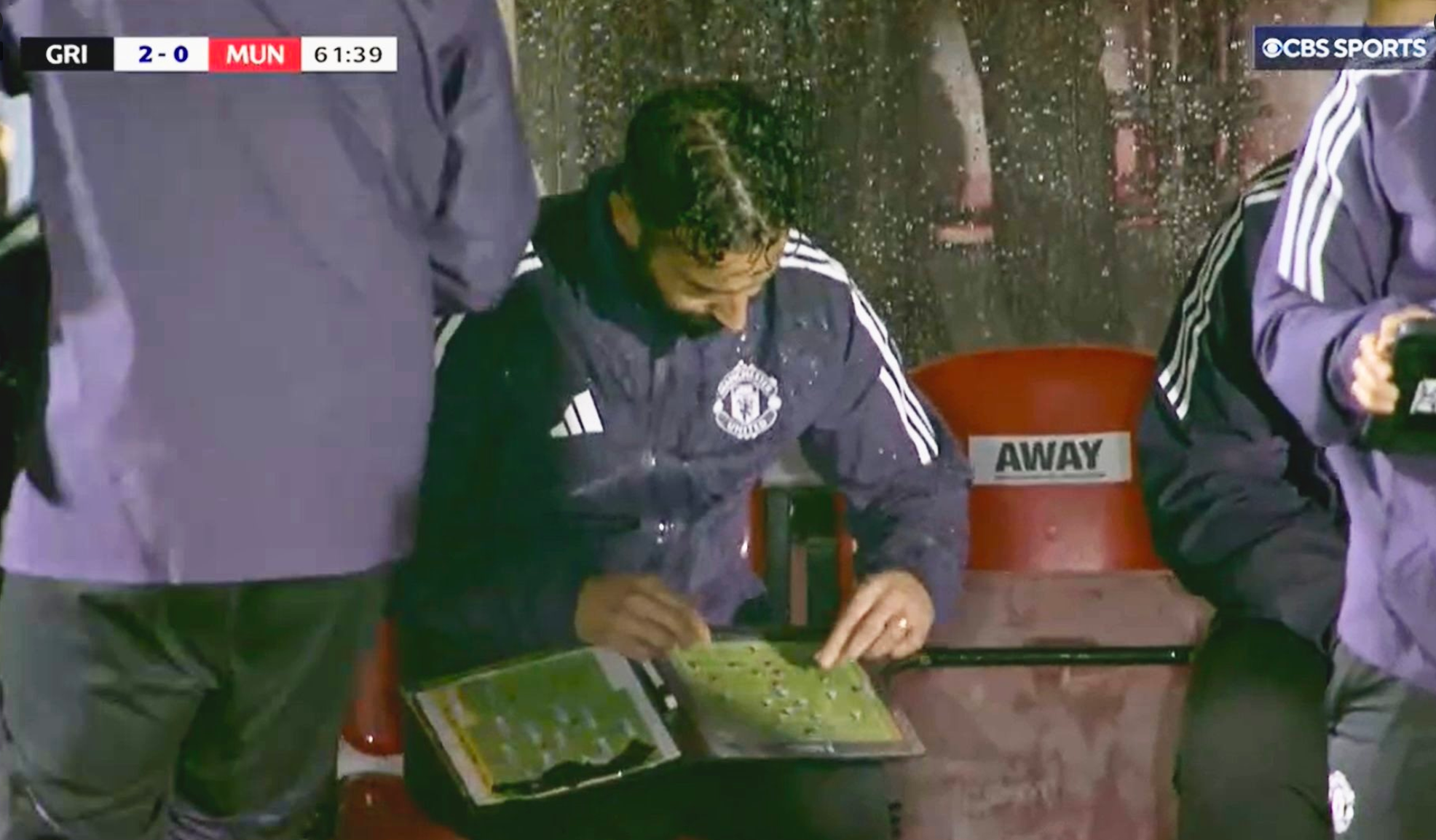It is a recurring theme of Ruben Amorim’s reign in charge of Manchester United that just when it seems as though it cannot get any worse, it does. A few weeks into his time in charge at Old Trafford, the Portuguese said they could be the worst team in the club’s history.
After recording the lowest finish in half a century, they got one of the worst results in the club’s history. United put the grim into Grimsby to beat a humiliating exit from the Carabao Cup; but then United have put the grim into many another place, Manchester very much included.
This could be called a new low; but then the phrase has been used so often it should be retired. United have reached more new lows than a particularly intrepid deep-sea diver.
As they headed back from Lincolnshire, the seats on the team coach presumably arranged in a 3-4-3 formation that suits no one, they may have done so with the sense history is repeating itself: but the first time as farce and the second as even more of a farce.
Once again, United persevered with an underperforming manager, gave him £200m to spend in a summer and then saw early evidence a new season was not a fresh beginning.
“Something has to change,” said Amorim at Blundell Park. But a lot has changed in his reign and the results have got worse. Amorim could be United’s failing revolutionary. For all the problems he inherited, and there were many, he has compounded them.
He is a manager who averages under a point a game in the Premier League; along with Russell Martin and Ange Postecoglou, Amorim was one of a trio who put dogma before victories last season. The other two are no longer in the same jobs now. Martin may soon be out of a second post.
There are enduring issues with the culture of underachievement at Old Trafford but Amorim has a team that is forever less than the sum of its parts. A stubbornness about the system remains an essential flaw. No one plays 3-4-3 worse than Manchester United, but no one is as wedded to it.
And yet, wonderfully as Grimsby played, the reality that United had never previously lost to a fourth-division team in the League Cup underlined that they should have been capable of beating them, regardless of tactics. This was a far more seasoned group than the youthful squad Louis van Gaal picked when United lost 4-0 to third-tier MK Dons in 2014.
While Amorim has reduced the value of many a footballer, United’s starting 11 at Grimsby cost over £400m; the five substitutes used came to some £250m. Never has so much been spent to accomplish so little.

But that spending shone a light on Amorim’s decision-making. United opted to make their three main summer buys all attackers. But Andre Onana’s faltering form has been an issue for two years, and his arrival a costly mistake by Erik ten Hag. It is not rewriting history to suggest a goalkeeper should have been a major priority this window. Instead, three games in, there have been two awful blunders: by Altay Bayindir against Arsenal and Onana at Grimsby. The inexperienced Belgian Senne Lammens may now be bought, but with a pressure he has never previously encountered and which is greater because of Onana and Bayindir’s errors.
Each of the three new expensive attackers had a night to rue in Grimsby. That Benjamin Sesko was the last of the 20 outfield players on the pitch to take a penalty in the shootout reflected terribly on the Slovenian; he could learn from Bruno Fernandes who, fresh from missing at Fulham, went first and converted two spot kicks.
But the two United players to miss were Matheus Cunha, who spurned the chance to win the shootout, and Bryan Mbeumo, who lost it. They are Amorim’s £62.5m and £71m men; there was something sadly symbolic about their culpability. Mbeumo was almost immaculate from the spot in his Brentford days. Perhaps he has already been afflicted by the curse of United, where players cannot replicate their form for previous clubs.
Amorim could not watch the penalties. Many another would argue his United are often unwatchable. But as he moved his magnets around his tactics board, he was the Old Trafford equivalent of Nero fiddling while Rome burned.
But perhaps the pertinent problem is that Amorim’s best attacking gambit on that increasingly infamous tactics board is, while Mbeumo and Cunha had encouraging debuts against Arsenal, while the Cameroonian scored a fine goal at Grimsby, to shift Harry Maguire into the forward line and aim set-pieces at the centre-back.
Amorim’s United still don’t have a coherent plan of how to score goals. When he said something had to change, plenty of the players have. For all their imperfections, the exiled – Marcus Rashford, Jadon Sancho, Alejandro Garnacho and Rasmus Hojlund – are entitled to think a night in Grimsby illustrated that they were not the sum of the problems.
Nor, in fairness, is Amorim. But a new regime is now very tainted. In director of football Jason Wilcox’s time, United have spent £120m on Patrick Dorgu, Joshua Zirkzee and Manuel Ugarte, all nowhere near good enough, while dispensing with players in the same positions, in Alvaro Carreras, Rashford and Scott McTominay, now at Real Madrid and Barcelona and the Serie A MVP at Napoli respectively.
United’s decision-making can feel flawed at every level, from executives in the boardroom to goalkeepers in the penalty box. But the point is getting nearer when they will have to examine if Amorim was the right choice, and if he remains it.
Read the full article here


